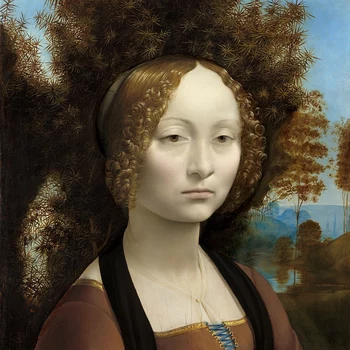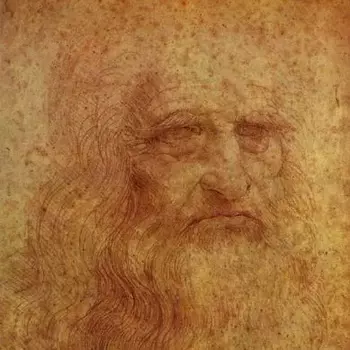Leonardo da Vinci - Fables
Preliminary note
The Problem of the Rephrasings by Bruni Nardini
Currently there are two booklets in which Leonardo's fables can be purchased in book form. One "The Donkey on the Ice" from the Union Publishing House and a second older version "Leonardo da Vinci, Fables", first published in 1978 by the Reclam Publishing House. Both are based on the translation from Italian by Rudolf Hagelstange (1912-1984), who did not use the original texts of Leonardo da Vinci as a basis for his translations, but he used the texts of a Bruni Nardini. Bruni Nardini (1921-1990) was considered a connoisseur of the Renaissance and, among other things, compiled Leonardo da Vinci's fables from his manuscripts.
In transcribing them, however, Nardini took some liberties. Often the fables in Leonardo's original are only noted as thoughts or merely short sentences. Nardini then formulated these thoughts very freely, presumably in order to make them known to a wider audience. In this way, however, the stinging precision of these parables from nature is often lost. Like the joke told as a short story. The parables thus embellished by Nardini, but still very brief, must then appear to the reader as too short self-contained little stories, which they were not. They were a collection of parables. Not more, but also not less, some longer, some shorter. It is not known whether Leonardo planned to elaborate on them later and publish them in book form, whether they were merely an intellectual exercise or whether they served as fantastic preliminary considerations for his pictorial narratives.
Here the fables are now to be published as Leonardo actually wrote them down. Nothing is added. Nevertheless, this is a translation, which admittedly cannot exactly reproduce the grammatical peculiarities of Leonardo's Italian formulations. If the reader likes it, individual fables can be further elaborated by the reader himself. It would thus be in no way inferior to Nardini's revision.
Comparison of the freedoms of Nardini's translation with the original
The original text by Leonardo da Vinci
When the donkey fell asleep on the ice surface of a deep lake, the ice melted due to his body heat. To his great sorrow, the donkey woke up underwater and drowned on the spot.
Nardini's translation
Once upon a time there was a tired donkey who thought he could no longer walk all the way to the stable. It was winter and very cold; all the roads were icy. "I'll stay here," said the donkey and dropped to the ground. A small, hungry sparrow approached him and whispered, "Donkey, you are not on the road, but over a frozen lake. Pay attention!" The donkey, sleepy, yawned with pleasure and fell asleep. But his body heat gradually began to thaw the ice until it broke with a crash. When the donkey found himself in the water, he did feel disturbed. But now it was too late and he drowned.
Comparison
At first glance, it can be seen that Nardini has tripled the size of the original text. By using the familiar formula "Once upon a time ..." Nardini tries to make a kind of fairy tale out of Leonardo's short parable, but the scene, which is in itself empty of content, does not deliver it. This makes Nardini's variant seem clumsy, because it is executed but still seems empty and still too short.
Leonardo's variant was probably only about nature and the unreasonable handling of it. An annual process, namely the change of the aggregta state of solid ice into liquid water under the influence of heat becomes the doom of a careless donkey. The donkey does not know this law of nature. It is typical for Leonardo to try to transfer abstract laws of nature and their very practical effects into everyday life.
Nardini does not leave it at the scene reduced to the essential by Leonardo. The short instructive picture is explained by Nardini and made understandable to the reader in the person of the instructive sparrow in such a way that the teaching of the picture can really be understood by everyone. He also thinks that it is necessary to give the donkey a short history, to invent reasons for his actions. He disregards Leonardo's art in an almost arrogant way by declaring it incomplete. It is up to the reader to decide which version he prefers.
He who can go to the spring, let him not go to the pitcher.
The Fables of Leonardo - A Selection
In contrast to Nardini's versions, the following texts have been translated from Italian into German without additions to Leonardo's original texts. In this way, the core of the text should stand out more clearly. And Leonardo's actual intention should not be obscured by insertions of content. Where appropriate, thematically appropriate drawings by Leonardo have been included for visual relief. Besides the fables presented here, there are at least 30 more fables in the booklet "Der Esel auf dem Eis" (Unionsverlag), but then in Nardini's version.
The flint
When the flint was struck by the iron, he wondered greatly and said to him in a stern voice, "What arrogance makes you press me? Let go, for you have chosen me by mistake. I have never harmed anyone." To this the steel replied, "If you have patience, you will see what a wonderful result will come out of you." At these words the flint was appeased and patiently endured his trial, and he saw it produce the wonderful element of fire, which proved essential by its power for innumerable things. Let this be said to those who are initially dissatisfied with their studies, but then control themselves and patiently and continuously devote themselves to their studies, and in this context you see how wonderful things come about.
The donkey on the ice
When the donkey fell asleep on the ice surface of a deep lake, the ice melted due to his body heat. To his great sorrow, the donkey woke up underwater and drowned on the spot.
The oyster and the crab
When the moon is full, it opens completely, and when the crab sees it, it throws a small stone or a stalk into it. Thus, it can no longer close and becomes food for the crab. In the same way, the one who opens his mouth to reveal his secret makes himself the prey of the indiscreet listener.
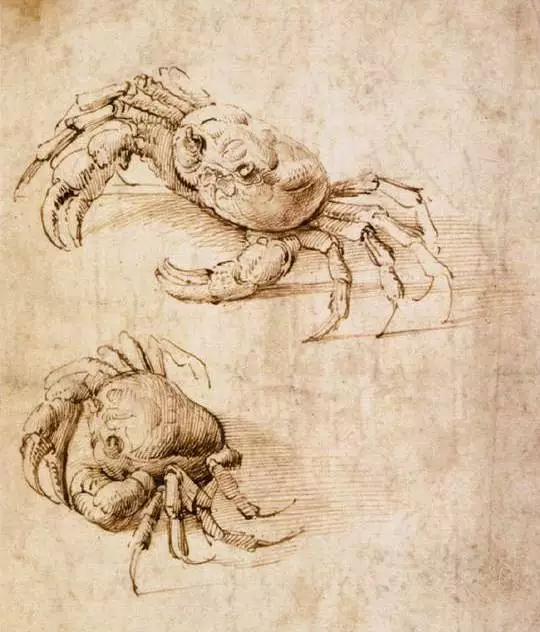
The oyster and the rat
The oyster, which had been thrown with other fish from a fisherman's house not far from the sea, asked the rat to take it to the sea. Intending to eat it, the rat persuaded the oyster to open, and when it bit, the oyster clamped its head and held it. Then the cat came and killed the rat.
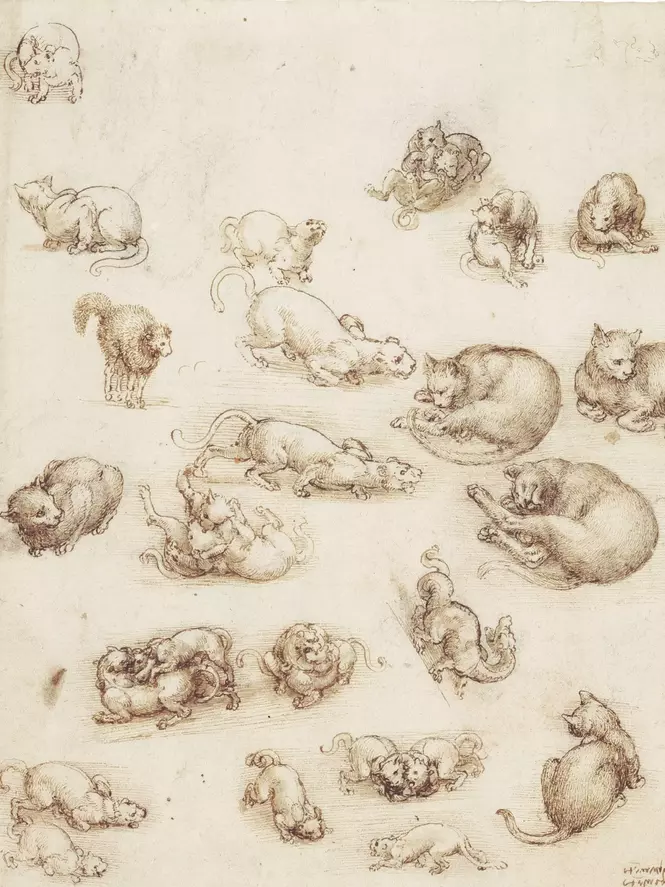
The pelican
He feels the greatest love for his kin, and when he finds them dead in the nest from snakebite, he stabs himself in the heart and bathes them in his gushing blood until they return to life.
The spider in the keyhole
After a spider had explored the whole house inside and out, it decided to hide. It decided to hide in a keyhole. What an ideal place of refuge! Who could ever have discovered her here? God knows, she could have shown herself at the edge of the keyhole and overlooked everything without putting herself in danger. "Down there," she spoke to herself, looking furtively at the stone threshold, "I'll make a net for the flies. Up here," she added, exploring the step, "I will stretch another for the caterpillars. Here, next to the door knocker, I will put a small mosquito trap." The spider was pleased. The keyhole gave her a new and unfamiliar security. So narrow, dark, iron-clad, it seemed more impregnable than a fortress, more secure than any armour. As she pondered these thoughts, a sound of footsteps reached her ear. So she wisely retreated to her hiding place. Someone stopped at the door to enter the house. A key rattled, penetrated the keyhole and crushed the spider.
The flea and the sheep
As the dog slept on a sheepskin, one of the fleas, smelling the greasy wool, decided that this must be a better place to live than feeding on the dog, and also more protected from its teeth and claws. Without thinking further, he left the dog and went into the dense wool. With the greatest effort, he began to climb down to the roots of the hair, but after much shed sweat, this endeavor proved impossible. For the hairs were so close together that they almost touched, and there was no place where the flea could have tasted the skin. After a long effort and agony, he wanted to return to his dog. But the dog was already gone, and so the flea had to starve after long remorse and bitter tears.
The nut and the steeple
A nut that the crow had carried up a high church tower had escaped the deadly beak through a gap into which it had fallen. She asked the wall to help her for the grace God had granted her by making her so high and tall and rich in such beautiful bells of such venerable sound. And that the wall should not leave her to herself, for yet she had not been able to fall under the green branches of her old father, where she would lie in the fat earth and be covered by his falling leaves. For when she had been in the beak of the cruel crow, she had sworn to end her life in a little hole if she escaped the crow. Moved by pity, at these words the wall was glad to receive her in the place where she had fallen. And after a short time the nut began to burst open, to take root between the cracks of the stones, to enlarge them, to stretch shoots from their cavity, and a little later to rise above the building. And as the sinuous roots grew thicker, they began to push the walls apart and displace the old stones from their place. Then, late and in vain, the wall cried for the cause of its demise, and in a short time it split and collapsed with its limbs in great pieces.
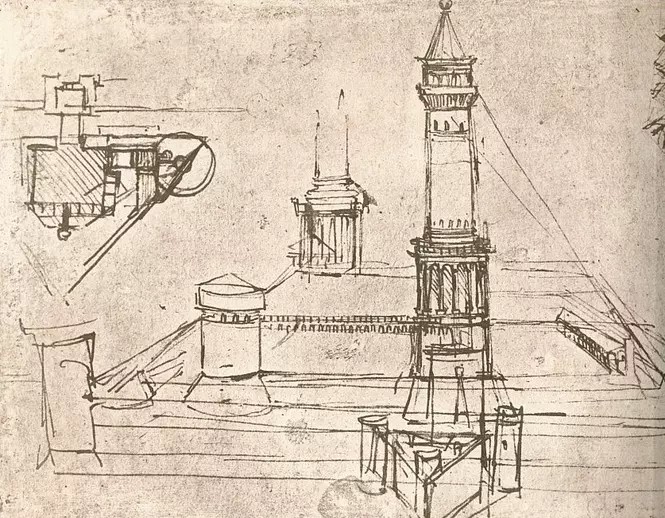
The lambs
The very highest example of humility is the lamb that submits to every animal. And when the lambs are given to the lions in the cage to eat, they submit to them as to their own mother, so that it has often been seen how the lions would not kill them.
The hawk and the duck
The hawk could not wait patiently for the duck, which had dived into the water in flight from him, to hide, and wanted to pursue it under water. With drenched feathers he remained in the water, the duck rose into the air and taunted the hawk, which then drowned.
The eagle
It is said of the eagle that it is never so hungry that it does not leave some of its prey to the birds around it. And because these cannot feed themselves, they must be courtiers of the eagle, because in this way they receive food.
The caterpillar
The caterpillar that, through diligent study, knows how to spin a new dwelling around itself with marvelous skill and the finest work, from which it then hatches with beautifully painted wings, with which it rises into the sky.
The razor
One day the razor left the handle with which it wrapped itself and stood in the sun. There it saw the sun reflected on its body. Filled with the greatest pride, it turned its thoughts to the past and began to talk to itself: should I go back to the store I just left? Surely not. It cannot be the will of the gods that such a radiant beauty should stoop to such mean things. What madness could make me scrape off the soaped beards of coarse peasants and perform such simple services? Is this body made for such exercises? Surely not. I want to hide in a secret place and spend my life there quietly and undisturbed." And after hiding for some months, one day it returned to the air, and when it left its shell, it found that it resembled a rusty saw, and that in its surface the shining sun was no longer reflected. With useless remorse it wept in vain for the irreparable damage and said to itself: How much better it was to practice at the barber's my lost blade, once so tremendously sharp. Where is the shiny surface now? The same thing happens to those who abandon their minds to idleness instead of practicing them. Then, like the razor mentioned above, they lose their sharp blade, and the rust of ignorance corrupts its shape.
The monkey and the bird
When the monkey found a nest with baby birds, he approached them excitedly. But they could already fly, and he could grab only the smallest one. Happily, he carried it in his hand to his hiding place. There he began to look at the little bird and kiss it. And in his heartfelt love he kissed and hugged and squeezed it so much that he took its life. Let this be said to those who spoil their children and thus cause mischief.
The moth and the light
The imaginary fluttering moth was not satisfied with casually flying through the air. Lured by the graceful flame of the candle, she decided to fly into it. Her joyful movement abruptly became an occasion for sadness, as her delicate wings burned in the flame. Completely burned, the unfortunate moth fell onto the base of the candlestick. After a long time of regret and lamentation, she dried her tear-soaked eyes again, lifted her face and said, "False light, how many have you miserably deceived in the past as you have deceived me! If I wanted to see the light, should I not have distinguished the sun from the false light of the dirty valley?"
The elm and the fig tree
The fig tree stood beside the elm, and when he saw that its branches bore no fruit, and yet were so bold as to keep the sun from its unripe fruit, he said to it reproachfully, "Elm, are you not ashamed to stand before me? Only wait until my children are grown, and then you will see where you will find yourself!" When the children had grown up, a troop of soldiers came by, and they fell upon the fig tree to pick its fruit, breaking off the branches and damaging it. Afterwards, as he stood there with his limbs completely mutilated, the elm tree said to him, "Fig tree, how much better it was not to have children than to be in such a miserable condition because of them!"
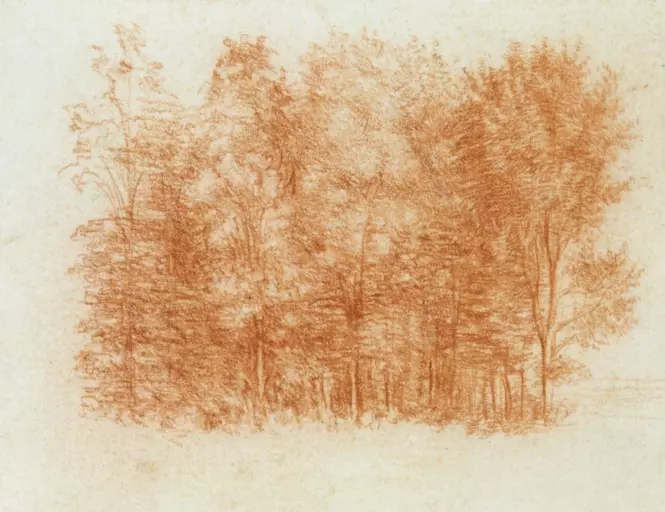
The privet and the blackbird
The privet, feeling the sharp claws and the beak of the meddlesome blackbird on its slender branches covered with young fruit, complained painfully to the blackbird and asked it, since it had already taken away its expensive fruit, to at least leave the leaves that protected it from the scorching rays of the sun and not to scratch and tear at the tender bark with its sharp claws. To this the blackbird replied with an insolent scolding, "Quiet, raw brushwood! Don't you know that nature has made you produce these fruits as my food? Do you not see that you are in the world to offer me such food? You lout, don't you know that next winter you will be food and supply for the fire?" The tree accepted these words patiently and not without tears. But a short time later, the blackbird became entangled in a net. When branches were collected for a cage in which the blackbird was to be locked up, the branches of the slender privet, among others, were used for the bars of the cage. When he saw that they were the cause of the blackbird's lost freedom, he rejoiced and said, "Blackbird, I am still here - not burned by fire, as you said. I'd sooner see you in prison than see me burned."
The flame and the candle
Some flames had already lived a month in the furnace of a glassblower when they saw a candle approaching in a beautiful polished candlestick. Seized by great eagerness, they struggled to get to it. One of them left its natural place and wormed its way into a hollow sliver, from which it fed. Through a small gap near the candle, she pounced on it with supreme greed, devouring it and consuming it that it was almost over. And wanting to prolong its life, it tried to return to the furnace it had left. But it was in vain, and so it had to die and perish together with the candle. Weeping and remorseful, she finally turned into troublesome smoke, leaving the sisters all in radiant beauty and with long life.
The crocodile
This animal seizes the person and kills him immediately. After it has bitten him to death, it cries for him with a touching voice and many tears. And when it has finished its wailing, it devours him cruelly. This is how the hypocrite acts, whose face fills with tears at the slightest opportunity while showing the heart of a tiger. And with his face covered with tears, he rejoices in his heart over the misfortune of others.
The toad
The toad flees from the sunlight, and when it is forcibly restrained there, it inflates itself so much that it can hide its head under itself and withdraw it from the sun's rays. So does the enemy of bright and radiant virtue, who can endure it by coercion and with his mind inflated before it.
The phoenix
The phoenix corresponds to the steadfastness, which by nature knows about its renewal. He has the steadfastness to endure the fiery flames that burn him, and thereupon he is reborn.
The unicorn
Because of its intemperance and because it does not know how to tame its inclination towards virgins, the unicorn forgets its wildness and timidity. Putting aside all suspicion, it approaches the seated virgin and falls asleep in her lap. In this way the hunters can catch it.
The hawk and the eagle
The falcon, because of its arrogance and haughtiness, wants to rule and command over all other birds of prey. He always wants to be the only one, and often the falcon has been seen attacking the eagle, the king of birds.
The donkey and the spring
If the wild ass goes to the spring to drink and finds the water murky, his thirst will never be so great that he will not give up drinking and wait until the water becomes clear again.
The bats
The bat, because of its rampant desire, does not follow any general rules of lust, but male with male, female with female, as they happen to come together, they practice coitus.
The bear and the bees
It is said of the bear that when he goes to the beehives to take their honey, the bees begin to sting him, whereupon he desists from the honey and takes revenge. And because he wants to take revenge on all those who sting him, he does not take revenge on anyone. So his anger increases to frenzy. And furiously he throws himself to the ground and tries to defend himself against those with hands and feet in vain.
The bee state
And one can compare the virtue of justice with the king bee, who orders and determines everything with reason, because some bees are destined to seek out the flowers, others to work, others to fight the wasps, still others to remove the dirt, and some as companions and courtiers of the king. And when he is old and has no more wings, they carry him. And if one does not fulfill his duties, he is punished without leniency.
The partridges
Although partridges steal each other's eggs, the young that hatch from these eggs always return to their true mother.
The mole
The mole has tiny eyes and always stays underground. As long as it is hidden, it lives, but when it comes to light, it dies on the spot because it is recognized. So too is the lie.
The lion
The lion is never afraid, but fights with a bold spirit against the great host of hunters, always eager to hurt the one who hurt him first.
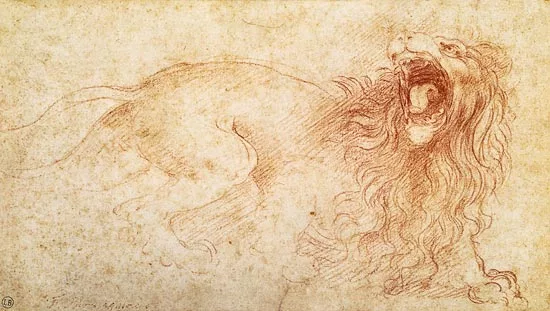
The hare
The hare is always afraid. Even the leaves that fall from the trees in autumn always scare him and he usually takes flight.
The fox and the birds
When the fox sees a flock of magpies or jackdaws or similar birds, he immediately throws himself on the ground with his mouth open, so that he looks like dead. The birds want to peck his tongue, and he bites off their heads.
The bee
The bee can be compared to the deceiver, because it has honey in its mouth and poison behind it.
The lark
The meadowlark is a bird of which it is said that when it is brought to a sick person and the sick person is dying, it turns its head away from him and does not look at him. And when the sick person is to be saved, the bird never turns its gaze away from him, but causes any sickness to fall away from him. It is the same with virtuous love. It never looks at ignoble or bad things, but always dwells on honest and virtuous things, and penetrates noble hearts, like the birds in the green forest on the flowering branches. And this love shows itself stronger in adversity than in prosperity, much like light when it shines brighter in a darker place.
The water
The water, finding that its element was the magnificent sea, was seized with a desire to rise above the air, and encouraged by the element of fire, and rising as a very fine vapor, it seemed as if it were really as thin as air. However, after rising very high, it reached the air, which was even rarer and colder, where the fire left it and the tiny particles, brought together, united and became heavy; whereupon her pride left her, she experienced flight and fell from heaven and became drunk on the dry earth, where, after being trapped for a long time, she repented of her sin.
The snow
A small piece of snow, clinging to a rocky ledge that was on the highest elevation of a very high mountain and left to its own imagination began to reflect in this way, saying to itself: "Well, shall I not be thought vain and proud that I have placed myself - such a small piece of snow - on such a high point that such a large amount of snow as I have seen around me here occupies a lower place than I? My small abem measurements do not deserve this elevation at all. How easily I can take this as a proof of my insignificance, like the same fate that the sun gave yesterday to my companions, who were all destroyed by the sun in a few hours. And this happened because they had placed themselves higher than they came into being. I will flee from the wrath of the sun, humble myself and find a place that corresponds to my lowly importance. "So he pulled himself down and climbed from his high house to the other snow, but the more he searched in a low place, the greater became the mass, so that at last the course ended on a hill, and was not less great than the hill on which it was before, and it was the last snow of that summer which was destroyed by the sun. This is said for those who humble themselves and are exalted.
The water and the fire
In a dispute with water in a pot, the fire says that the water should not be above the fire, which is the king of the elements, and it tries to drive the water out of the pot by boiling the water. The water, giving the fire the honor of its obedience, descends and drowns the fire.
The chestnut and the fig
The chestnut saw a man on the fig tree, he bent down the branches and tore the ripe fruit, which he took into his open mouth to destroy and crush with his hard teeth. Dei chestnut threw its long branches and cried with a loud rustling: "Fig! How much less are you protected by nature than I am? Seest thou how my sweet offspring stand close together; first clothed in soft sheaths, over the hard but softly lined; and not content thus to care for them, and to give them so strong a protection, Nature has put on these sharp and close-fitting spines, so that a man's hand is not able to hurt them. "Then the fig tree and its offspring began to laugh and mock. And they said, "I know that man is so resourceful that he will rob you of your fruits with sticks, stones, and stakes between your branches; and when they have fallen off, he will trample them with his feet or with stones, so that your descendants will come bruised and maimed, out of their armor. I, on the other hand, will be touched carefully by their hands, and not with sticks and stones as you are."
The willow and the magpie
The unfortunate willow, finding that she could not enjoy the pleasure of seeing her slender branches grow to the desired height, because of the tendril and other species of trees that grew nearby but were not as beautiful to look at as she, brought all her spirits together and devoted herself entirely to fantasy, standing in long meditation and searching the whole plant world. After standing for some time in this productive imagination, the gourd presented itself to her thoughts with a sudden flash, and she threw all the branches forward with extreme delight, and it seemed to her that she had found the proper companion for her purpose, for the gourd is more apt to bind others to itself than herself; Having come to this conclusion, she eagerly awaited a friendly bird as the mediator of her wishes. Seeing the magpie near her, she said to him, "Oh, dear bird! by the memory of the refuge you found under my branches this morning, when the hungry, cruel, and rebellious hawk was about to devour you, and by the rest you always found with me when your wings longed for rest, and by the joy, which I enjoyed under my branches when you played with your companions or made love - I ask you to find the gourd and receive from it some of its seeds, and tell it that those who are born from it will be treated just as if they were my own flesh and blood; and in this way use all the words you can think of that have the same persuasive meaning; but since you are a master of language, I do not need to instruct you. And if thou wilt do me this service, I will gladly have thy nest in the fork of my branches, and all thy family, without paying any rent. "Then the magpie made some new arrangements with the willow, especially that it should never let a snake or a polecat come to it, cocked its tail, put down its head, and threw itself from the branch, throwing its weight on its wings, and these beat the fleeting air here, sometimes here, sometimes there, curiously carried about, while his tail served as a rudder to steer him, he came to a gourd, then with a beautiful bow and a few polite words received the necessary seeds and carried them to the pasture, which he received with a cheerful face. And when he had wiped with his foot a small amount of earth near the willow, describing a circle, he planted with his beak the grains, which in a short time began to grow and by their growth took all the branches of the willow, while their broad leaves deprived them of the beauty of the sun and the sky. And not content with so much evil, the gourds next began with their coarse grasp to drag down to the earth the ends of the tender shoots with strange twists and contortions. In vain the willow tugged and shook itself to throw off the gourd. After trying this for a few days, she saw the wind coming through. The wind blew fiercely and opened the old and hollow trunk of the willow in two up to the roots, so that it fell in two. In vain she complained to realize that she was born to no good purpose.
![[Translate to english:] [Translate to english:]](/fileadmin/_processed_/0/7/csm_leonardos-fabeln_f806138bd6.webp.pagespeed.ce.wh0NJ1Yhk2.webp)
![[Translate to english:] [Translate to english:]](/fileadmin/_processed_/8/b/csm_leonardo-alle-gemaelde_2dc4b01ef6.webp.pagespeed.ce.ohfmgl8OfF.webp)
![[Translate to english:] [Translate to english:]](/fileadmin/_processed_/4/8/csm_giorgio-vasaris-biografie-ueber-leonardo-da-vinci_5d12ee589b.webp.pagespeed.ce.be8yQGCZYc.webp)
